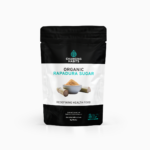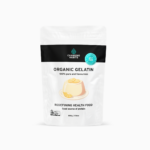I was interviewed on ABC Radio recently about how to look after yourself on antibiotics. This is an edited transcript of this interview. I hope you find it interesting and informative. – Cyndi
(ABC Radio host): Once upon a time if you cut your finger and got an infection you could die from that infection. So antibiotics were seen very much as a miracle and in many ways they were. They’ve saved millions of lives. But they have a huge impact on your digestive tract and your body so it’s important that if you have had antibiotics – or you plan to – that you take certain steps to maintain your health. Today we’re having a chat to nutritionist Cyndi O’Meara – author of the bestseller Changing Habits, Changing Lives to find out what we can do to look after ourselves if we’ve had antibiotics.
Cyndi, what happens to your digestive tract when you take antibiotics?
We are really just starting to understand these organisms that live within us called the microbiome which is bacteria and parasites that perform many metabolic functions. They produce Vitamin K and Vitamin B, they help with our immune system, they help with connections of our cell structure, and they digest our foods. They are a very important part of our body.
Back in the 50s and 60s it was all about ‘anti’ – antibacterial, antibiotics – anti everything. Now everyone is talking about prebiotics and probiotics because we’ve realised this amazing network of organisms is what keeps us healthy and as we destroy them, we destroy our health and we destroy our ability to make vitamins and digest our foods.
Where do they live these bacteria, the microbiome?
Mainly between the mouth and the anus – so the gastrointestinal tract – but they also live in every orifice we have. They’ve even been found in cellular fluids. They have always been seen as something bad – viruses and parasites – but the more we do our research, the more we realise that sometimes the bacteria do many things and we should stop the destruction of them and start nurturing them.
So with antibiotics – is it a bit like a weedkiller on your lawn? With a broad spectrum antibiotic is it the equivalent of killing the weeds as well as the lawn?
Yeah, a little bit like that. It explains the soil and the microbiology of the soil and the killing of microbiology means the plants can’t take up the nutrients and therefore are not healthy. We don’t sit in soil, but we carry our soil with us – we take the microbiology with us – that does the exact same thing.
So with a broad spectrum herbicide like Roundup or a broad spectrum antibiotic, we are destroying the important bacteria and the microbiology that is important for the health of the soil, the plants and us.
How do we restore it? If you’ve recently been on antibiotics – are there things you can do to restore the microbiome?
Most definitely. I always look at culture and tradition. How did the microbiome come into being and how has it changed? We realise now that every time you eat a food you change the microbiome. The microbiome allows you to spontaneously evolve to eat certain foods. As you can see right now some people can’t eat dairy, some can’t eat wheat. We’ve got some kids that can’t eat anything. They’ve got allergies to everything. There are two ways to improve it naturally.
Firstly, we heal the gut with multiple nutrition in the way of – chicken soups, old fashioned broths, old fashioned stocks. They’re great healers.
Then the second step is to replenish all of the bacteria that are missing through our cultural fermented foods.
In Russia, they have a cabbage party where they all dance on the cabbage with salt in it and make amazing sauerkraut like the Germans do. The Indians have beautiful fermented foods like kefir and yoghurt. Kimchi is Korean. So every culture has created a fermented food through culture and tradition and we realise now that this is what reseeds the microbiome. So instead of eating foods with preservatives and that were sterilised, they would eat foods that were filled with microbiology and bacteria and that’s what fed the microbiome. That’s what we need go back to – old fashioned cooking, our long cooked meats and our stocks and our broths and our fermented foods.
You’ve spoken before about yoghurt and that there’s a lot of difference between what is on our supermarket shelves – that it’s all flavours with hardly any living cultures in it at all. Where can someone get fermented food with the bacteria in it to repair the damage done to the digestive tract through antibiotics?
If you’re going to look at yoghurt – if you’re on a budget, try and find someone with a good culture and make your own – then it becomes very reasonable. If you’re not a budget and you’re time poor then go to your health food store – there are many new yoghurts around that are thriving with a wonderful population of good bacteria. But remember yoghurt is usually just two bacteria – and that’s lactobacilli and bifidis. We want more than lactobacilli and bifidis. Make sure you look at your vegetable cultures as well – then you have at least 15 or 20 different strands of bacteria.
What are vegetable cultures?
There is Kimchi – which is a variety of vegetables we put a culture in. There’ssauerkraut – which we use our hands to massage, so we’re putting cultures from our hands into the cabbage then we add salt to it – with a three day ferment.
Sour dough bread – that is, breads that have been fermented for three days. Not a bread risen in 20 minutes then thrown in the oven and ready. There’s alsokefir which is water or milk based that has different types of bacteria in it.
Also we’re so obsessed with anti-bacterial everything that maybe just wash your vegetables, they’ll still have microorganisms on them and as long as you don’t kill them, they’ll help the body.
The problem with listeria and E-coli that we’re all a bit crazy about at the moment as far as our milk and cucumbers and cabbages and lettuces. The problem there is that the microbiology within our body isn’t functioning so therefore it can’t protect us. So make sure you strengthen your body with the broths and fermented foods. For example people can go to a BBQ and eat the same foods – 30% will get sick and 70% won’t. They’ve all eaten the same foods – what’s the difference? It’s the immune system of the person and how the microbiome is working in some people to protect them.
So we’re told wash your vegies – scrub them, give them a good wash. But you’re suggesting our obsession with cleanliness or fear of germs – which has been a powerful message over many decades – in a way this has possibly contributed to the weakening of our immune system and therefore our recovery from antibiotics?
Yes, I think so. Antibiotics have been a life saver and when it is a life threatening situation, do not hesitate. But we’re finding that colds and flus are not often bacteria, they’re viruses, and giving broad spectrum antibiotics is not helping in any way. So we’re being told by our national health recommendations that we should not expect antibiotics from our doctor and that we should look at feeding the body the old fashioned way and getting through some of these minor infections rather than just getting broad spectrum antibiotics. And with ear infections, the latest research is showing that leaving it or healing it with food – it clears up about the same time as with antibiotics. But make sure you consult your doctor because he or she will know the new guidelines and will know what’s happening so it’s always good to get an opinion rather than hearsay around the place. Do your research, ask your doctor. Look at the new ways of dealing with things like this – like taking probiotics instead of antibiotics.
Once you’ve been on antibiotics, what role do things like cheese and alcohol have? They’re both fermented. Are they any good for you? What about vinegar?
Vinegar is wonderful especially your old fashioned vinegars like apple cider vinegar. I’ve just been to a food fair and I found holy basil, turmeric and wild thistle vinegars. They are this beautiful line of vinegars that I think are wonderful. Put them on your salads. They are a wonderful fermented food. As far as cheeses go, our old soft cheeses and our fetta cheeses, they are fermented too. You can see the blue vein and you can smell the bacteria. If you can tolerate dairy they are a wonderful way to feed the microbiome plus the fat in the cheese helps give you the vitamins you require for your immunity.
What about beer and other alcoholic drinks? They’re fermented I hear our listeners ask.
They are. I’m very much for the old fashioned beers. But many of our beers don’t have the purity law anymore. The purity law was that there were no preservatives in them, no colours in them, no flavours in them. They were just a fermented food like ginger beer. Just don’t add the other stuff. Same with beer, ring your local cottage industry beer maker – ask are you adding all of these things, or are you living by the old purity law? The old German law from the 1500’s was that beer could only include three ingredients, four at the most, and if it included any more, it could not be called beer. Still to this day – in Germany you cannot call a beer a beer unless it has only three or four ingredients and that includes the hops, the ferment and the water.
Happy Changing Habits








0 Comments